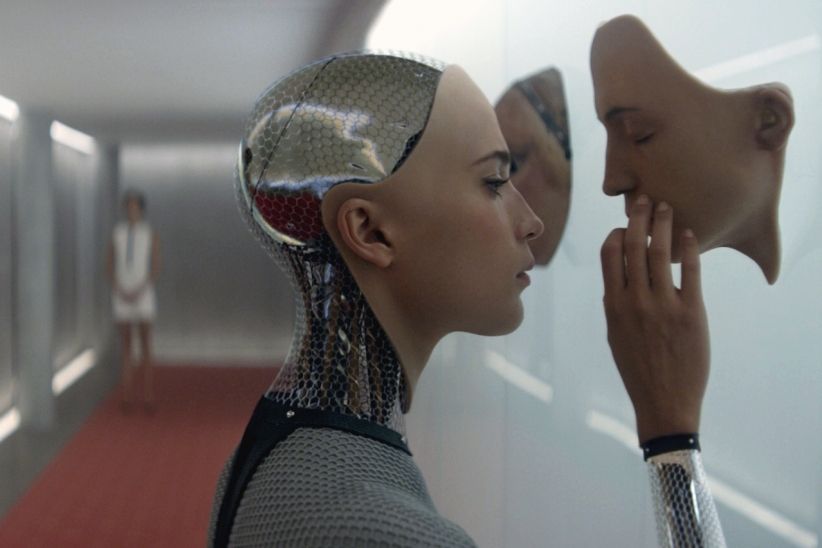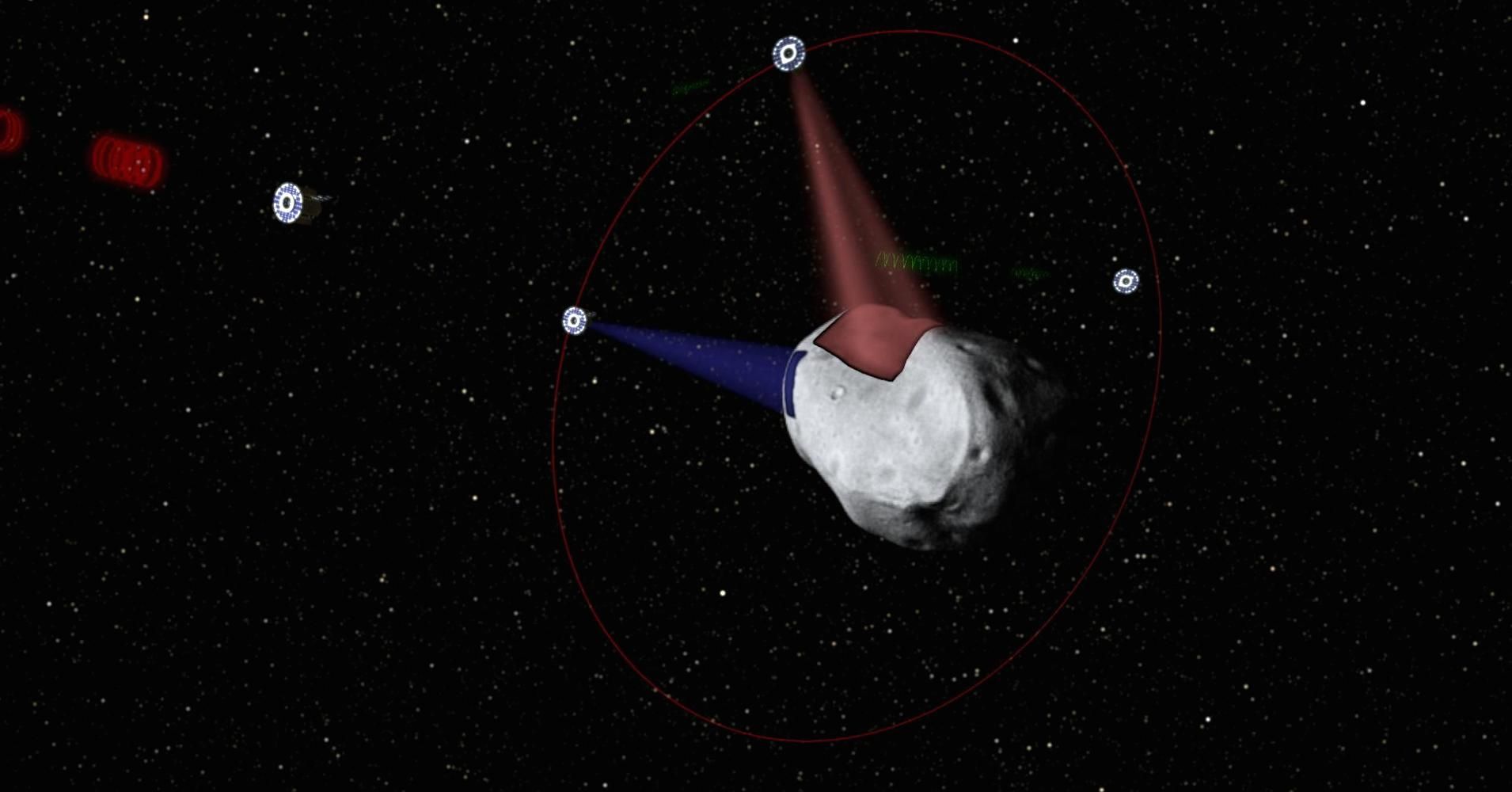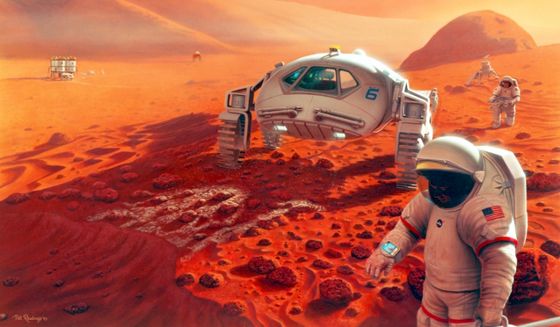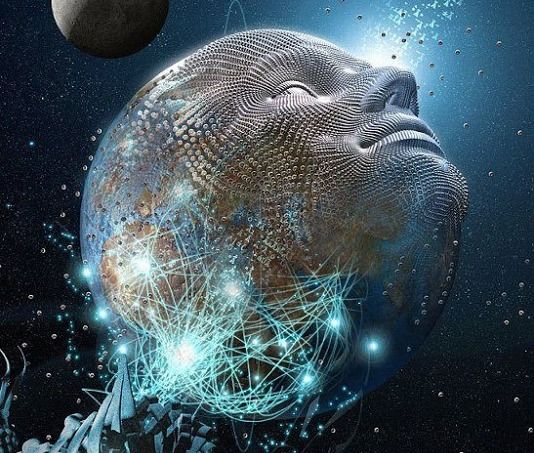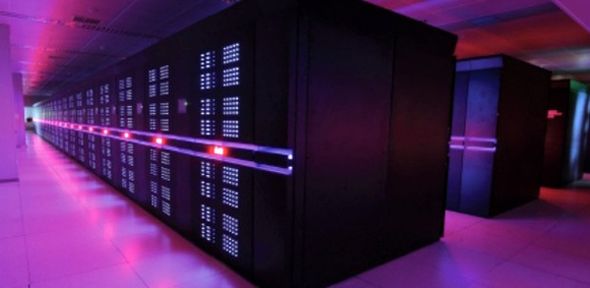Search results for 'Humanity': Page 37
Mar 11, 2016
Mining asteroids to tap resources for humanity
Posted by Klaus Baldauf in category: space
The co-founder of Planetary Resources reveals plans to harvest the cosmos for resources humanity needs — water, precious metals and diamonds.
Feb 20, 2016
United Nations CITO: Artificial intelligence will be humanity’s final innovation
Posted by Karen Hurst in categories: computing, internet, quantum physics, robotics/AI, security
I hate to break the news to the UN’s CITO — has she ever heard of “Quantum Technology?” After AI flood into the scene; the next innovation that I and others are working on is Quantum Computing which will make AI, Internet, Cyber Security, devices, platforms, medical technology more advance with incredible performance.
The United Nations Chief Information Technology Officer spoke with TechRepublic about the future of cybersecurity, social media, and how to fix the internet and build global technology for social good.
Artificial intelligence, said United Nations chief information technology officer Atefeh Riazi, might be the last innovation humans create.
Feb 8, 2016
Humanity in 2030: 危機
Posted by José Cordeiro in categories: futurism, life extension, singularity, space travel, transhumanism
The Rise of the Rest and Mars Colonization
The Chinese word for crisis has two characters (危機). The first character represents danger and the second can be interpreted as opportunity, change of time, moment or chance. Even though the meaning of these Chinese characters can vary according to the context and nearby characters, the understanding of crisis (危機) as danger (危) plus opportunity (機) can help us think about the challenges faced by humanity in 2030.
In the coming years, China will have the largest economy of the planet, dethroning the USA to number two, both economically and scientifically. India will also be catching up fast as the third largest economy in the world, and its population will continue increasing after overtaking that of China in 2025. The re-emergence of Asia, as represented by China and India, will create a dramatic shift in power and geopolitics from what has been called the West to the East. The international hegemony enjoyed by the West during the last half millennium will move back to the East, which already led the world in many areas before the European Renaissance.
Fortunately, during the next two decades, the world economy will keep expanding and human conditions will get better throughout the whole planet. Indeed, a rising tide lifts all boats. Poverty will be substantially reduced and the environment will be significantly improved thanks to a growing global conscience and continuous advances in technology. Even Africa, the historic cradle of civilization, but considered a basket case during the last few centuries, will experience its own re-emergence in the world stage. After experiencing growth of 5% during the 2010s, and even higher during the 2020s, most African countries will be joining the rapid development of China and India, like most of the rest of the world.
Feb 2, 2016
Transhumanism: The Transcendence of Paradigms & Future of Humanity
Posted by Shailesh Prasad in categories: futurism, transhumanism
What does it mean to be a Transhumanist and how will it change humanity as we move towards Transhumanism? — Francesco Neo Amati for Serious Wonder.
Jan 23, 2016
Study suggests the Internet really could out-evolve humanity
Posted by Shailesh Prasad in categories: evolution, internet, robotics/AI
This article was written by Michael Gillings, Darrell Kemp, and Martin Hilbert from the University of California, Davis, and was originally published by The Conversation.
Living things accumulate and reproduce information. That’s really the driving principle behind life, and behind evolution. But humans have invented a new method of accumulating and reproducing information. It’s digital information, and it’s growing at an astonishing speed. The number of people using the internet is growing, as are the devices connected to it through the Internet of Things.
Digital information can copy itself perfectly, increases in copy number with every download or view, can be modified (mutated), or combined to generate novel information packets. And it can be expressed through artificial intelligence. These are characteristics similar to living things. So we should probably start thinking about digital technology as being like an organism that can evolve.
Jan 18, 2016
Could this be humanity’s LAST century? Expert says ‘re-engineering our children’ will lead to the creation of a new species
Posted by Karen Hurst in categories: alien life, engineering, habitats
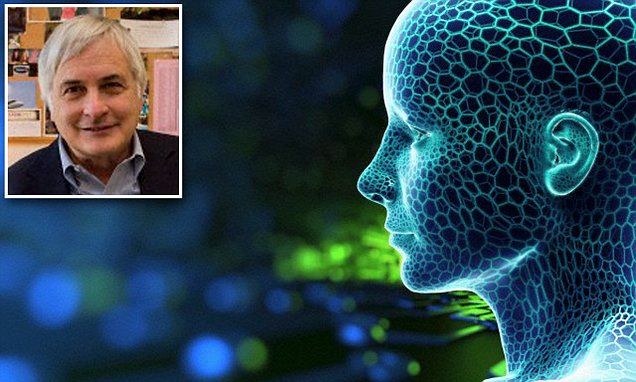
Definitely something to ponder on.
‘We can eventually produce offspring that are as different from us as dogs are from grey wolves,’ said Seth Shostak in an opinion piece for Seti.
Dec 14, 2015
Musk, others commit $1 billion to non-profit AI research company to ‘benefit humanity’
Posted by Sean Brazell in categories: Elon Musk, finance, neuroscience, robotics/AI
(credit: OpenAI)
Elon Musk and associates announced OpenAI, a non-profit AI research company, on Friday (Dec. 11), committing $1 billion toward their goal to “advance digital intelligence in the way that is most likely to benefit humanity as a whole, unconstrained by a need to generate financial return.”
The funding comes from a group of tech leaders including Musk, Reid Hoffman, Peter Thiel, and Amazon Web Services, but the venture expects to only spend “a tiny fraction of this in the next few years.”
Dec 3, 2015
The future of intelligence: Cambridge University launches new centre to study AI and the future of humanity
Posted by Andreas Matt in categories: futurism, robotics/AI
The University of Cambridge is launching a new research centre, thanks to a £10 million grant from the Leverhulme Trust, to explore the opportunities and challenges to humanity from the development of artificial intelligence.
Oct 28, 2015
Humanity on a Budget, or the Value-Added of Being ‘Human’
Posted by Steve Fuller in categories: automation, economics, futurism, governance, human trajectories, law, philosophy, policy, posthumanism, theory, transhumanism
This piece is dedicated to Stefan Stern, who picked up on – and ran with – a remark I made at this year’s Brain Bar Budapest, concerning the need for a ‘value-added’ account of being ‘human’ in a world in which there are many drivers towards replacing human labour with ever smarter technologies.
In what follows, I assume that ‘human’ can no longer be taken for granted as something that adds value to being-in-the-world. The value needs to be earned, it can’t be just inherited. For example, according to animal rights activists, ‘value-added’ claims to brand ‘humanity’ amount to an unjustified privileging of the human life-form, whereas artificial intelligence enthusiasts argue that computers will soon exceed humans at the (‘rational’) tasks that we have historically invoked to create distance from animals. I shall be more concerned with the latter threat, as it comes from a more recognizable form of ‘economistic’ logic.
Economics makes an interesting but subtle distinction between ‘price’ and ‘cost’. Price is what you pay upfront through mutual agreement to the person selling you something. In contrast, cost consists in the resources that you forfeit by virtue of possessing the thing. Of course, the cost of something includes its price, but typically much more – and much of it experienced only once you’ve come into possession. Thus, we say ‘hidden cost’ but not ‘hidden price’. The difference between price and cost is perhaps most vivid when considering large life-defining purchases, such as a house or a car. In these cases, any hidden costs are presumably offset by ‘benefits’, the things that you originally wanted — or at least approve after the fact — that follow from possession.
Now, think about the difference between saying, ‘Humanity comes at a price’ and ‘Humanity comes at a cost’. The first phrase suggests what you need to pay your master to acquire freedom, while the second suggests what you need to suffer as you exercise your freedom. The first position has you standing outside the category of ‘human’ but wishing to get in – say, as a prospective resident of a gated community. The second position already identifies you as ‘human’ but perhaps without having fully realized what you had bargained for. The philosophical movement of Existentialism was launched in the mid-20th century by playing with the irony implied in the idea of ‘human emancipation’ – the ease with which the Hell we wish to leave (and hence pay the price) morphs into the Hell we agree to enter (and hence suffer the cost). Thus, our humanity reduces to the leap out of the frying pan of slavery and into the fire of freedom.
Continue reading “Humanity on a Budget, or the Value-Added of Being 'Human'” »
